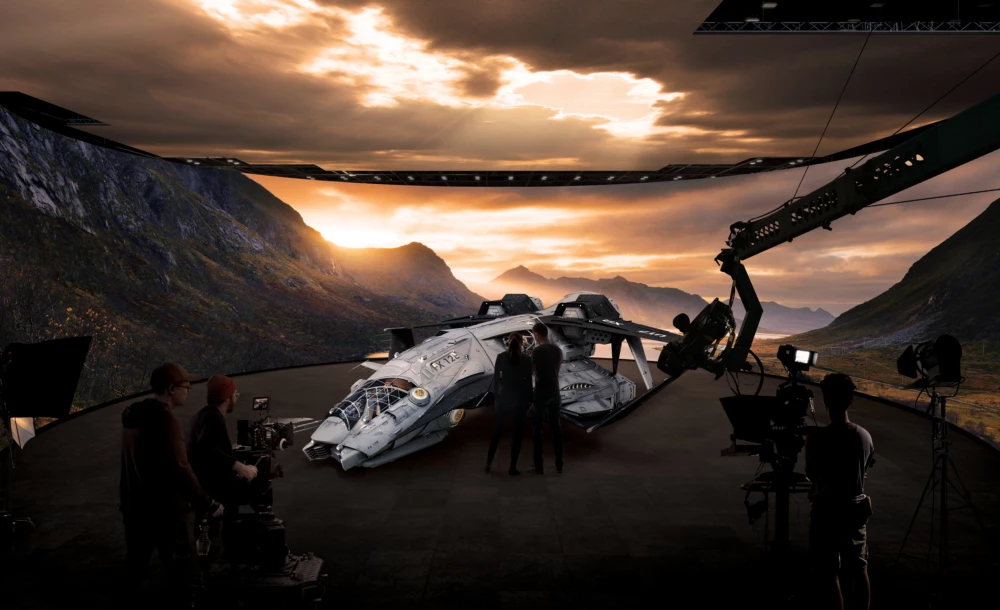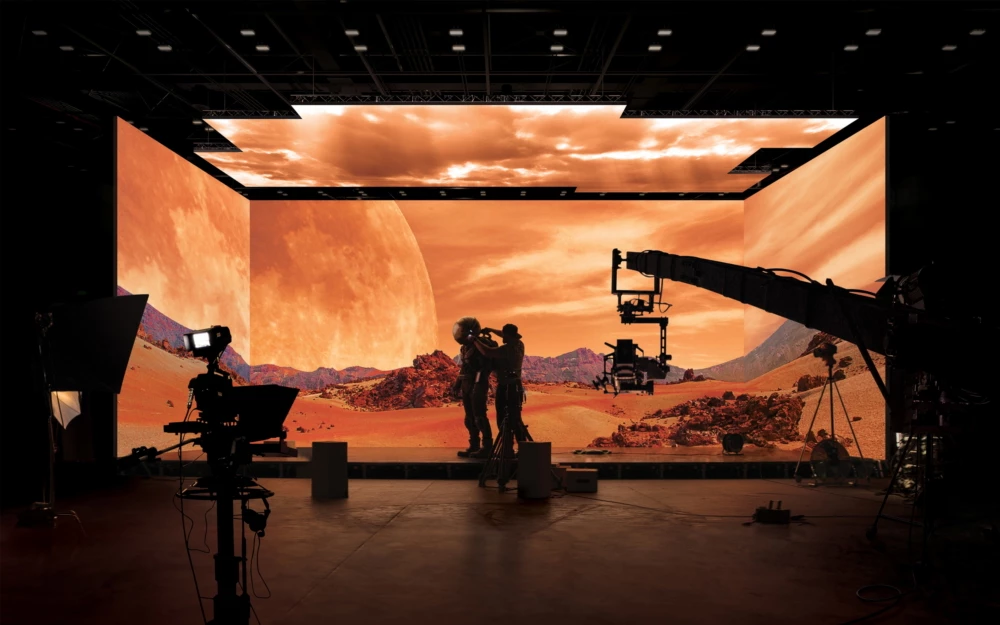Virtual set filmmaking has proven itself incredibly practical and flexible in a very short time, with Disney's The Mandalorian pioneering the technology in the streaming equivalent of prime time. To briefly recap, the show is shot on a large, flat sound stage surrounded by enormous video screens that wrap around the physical set, including the roof. These video screens show moving background images designed in a high-res video game engine, using extraordinary technology that responds to camera movements and lens settings.
The result: an unprecedented ability to simulate an incredibly broad range of location shots without ever leaving a single warehouse-sized studio. It's a revolution in cinematic lighting, because the virtual environment is the lighting, and it works beautifully with reflective surfaces. It also gives directors the godlike ability to literally move mountains, or change the time of day to get a better frame. And the ability to create alien planets or fantasy landscapes is nearly boundless.
The final product looks amazing, it's vastly cheaper than flying cast and crew around the world, and in times of plague, it makes it much easier to ensure your team stays safe at work. It can't do 3D, so it's not much chop in the blockbuster movie world, but streaming services are where it's at today anyway, and it's perfect for that.
South Korea is the Hollywood of Asia, producing insane amounts of music, TV and movie content with extraordinarily high production values and pushing it out through the entire region. The creative scene in Seoul operates at a frenetic pace; talent levels in every aspect of performance and production are truly frightening to behold, and the market's appetite for entertainment seems insatiable.
In that sense, it's kind of incredible that it's taken so long for a Korean company to get on the virtual studio bandwagon, but giant entertainment and media group CJ ENM has signed deals with Samsung and Epic Games to build Korea's first Mandalorian-style virtual set at a new TV and film production complex set to open in Paju, Northwest of Seoul, later this year.

Software-wise, it'll be the same Unreal-Engine-based system as what Mando's been using. Hardware-wise, the company has gone local, selecting a modified version of Samsung's giant "The Wall" video screen. The main screen will be an oval shape with a 20-meter (66-ft) diameter and a height of 7 m (23 ft) or more. About the size of the Mandalorian set, but taller.
It'll be a beauty of an LED screen, specially molded to reduce moiré patterns and capable of running dedicated production-standard frame rates (23.976, 29.97 and 59.94 Hz) in order to sync perfectly with the most widely used camera settings. In 1,000-inch trim, it runs a monster 16K resolution; lord knows how many dots will be available on this virtual set.
Either way, Korean dramas and K-pop videos are about to have the doors flung open to a new world of high-tech creative possibilities, and knowing how quickly the Korean entertainment industry adapts to new technologies, the whole of Asia – and enthusiastic splinter groups of Kweebs in Western countries – can expect some eye-popping results.
Source: Samsung






